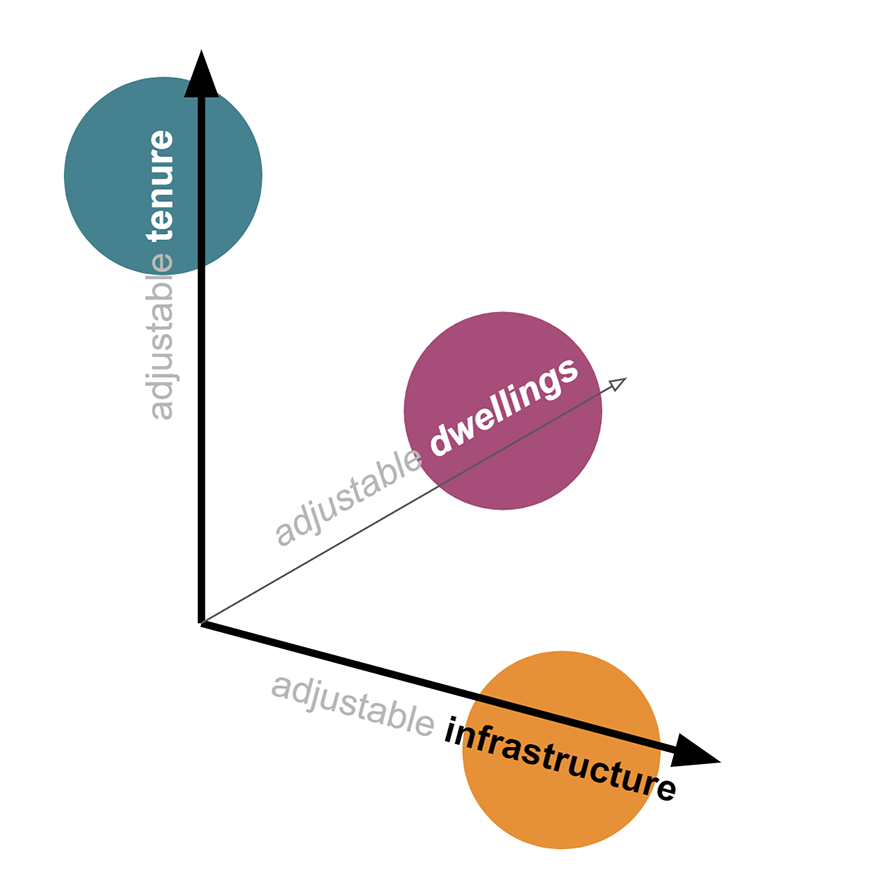Adjustable Housing to meet consumer demand for real choice
Over the next three years, Cullinan Studio’s Dr Philip Graham will be researching a transdisciplinary approach to delivering socially, environmentally and economically sustainable homes, using the concept of Adjustable Housing.
Philip will be seconded to the University of Cambridge, funded by an Innovation Scholar award from the Arts and Humanities Research Council (part of UKRI). The research aim is to show how UK housing systems could be redesigned so that a household’s changing needs can be supported over time, without requiring house moves or substantial building.
Adjustable Housing is not only about private living space (normally the primary consideration of architects), but is also a function of tax, tenure and the shared housing environment. The research will operationalise the recommendations of his PhD (University of Reading) and will look to show how designers could mitigate against the welfare and macroeconomic consequences of housing market illiquidity. This is a central but often overlooked problem that cannot be solved by new housing supply alone, and affects more marginal homeowners living in higher value, higher density areas.
Philip will be developing a handbook for industry, policymakers and practitioners that shows how to deliver Adjustable Housing. This will require collaborations to assemble the necessary technical insights, expert validation, case studies and potentially, a pilot project. To encourage these knowledge transfer partnerships, he can offer talks and lead discussions sessions with interested experts and organisations – especially those who can bring opportunities for post-occupancy evaluation.
Philip’s research will introduce new areas of knowledge to Cullinan Studio through real world case studies and collaboration with housing researchers at the University of Cambridge. In industry, the research will expand our understanding of housing’s social, economic and environmental value, with the aim of feeding into the levelling-up agenda, planning rules, space standards legislation, housing needs calculations and legislative reforms.
Dr Philip Graham said:
“It’s pretty rare for a practice to receive such generous, long-term funding. In fact, of the small pool of other AHRC Innovation Scholar awards, ours was the only one to fund a secondment from industry into academia. This means the opportunity to collaborate with a great university like Cambridge is unique. I hope to encourage others to take a similar path, so would love to hear from experts and innovators with an interest in designing 21st Century adjustable housing systems that support change over time. These might include designers, investors, planners, lenders, developers, marketers, users, clients, landowners and policymakers, with expertise or case studies upon which this exciting project can build.”
If you are interested in collaborating with the research, please get in touch.



